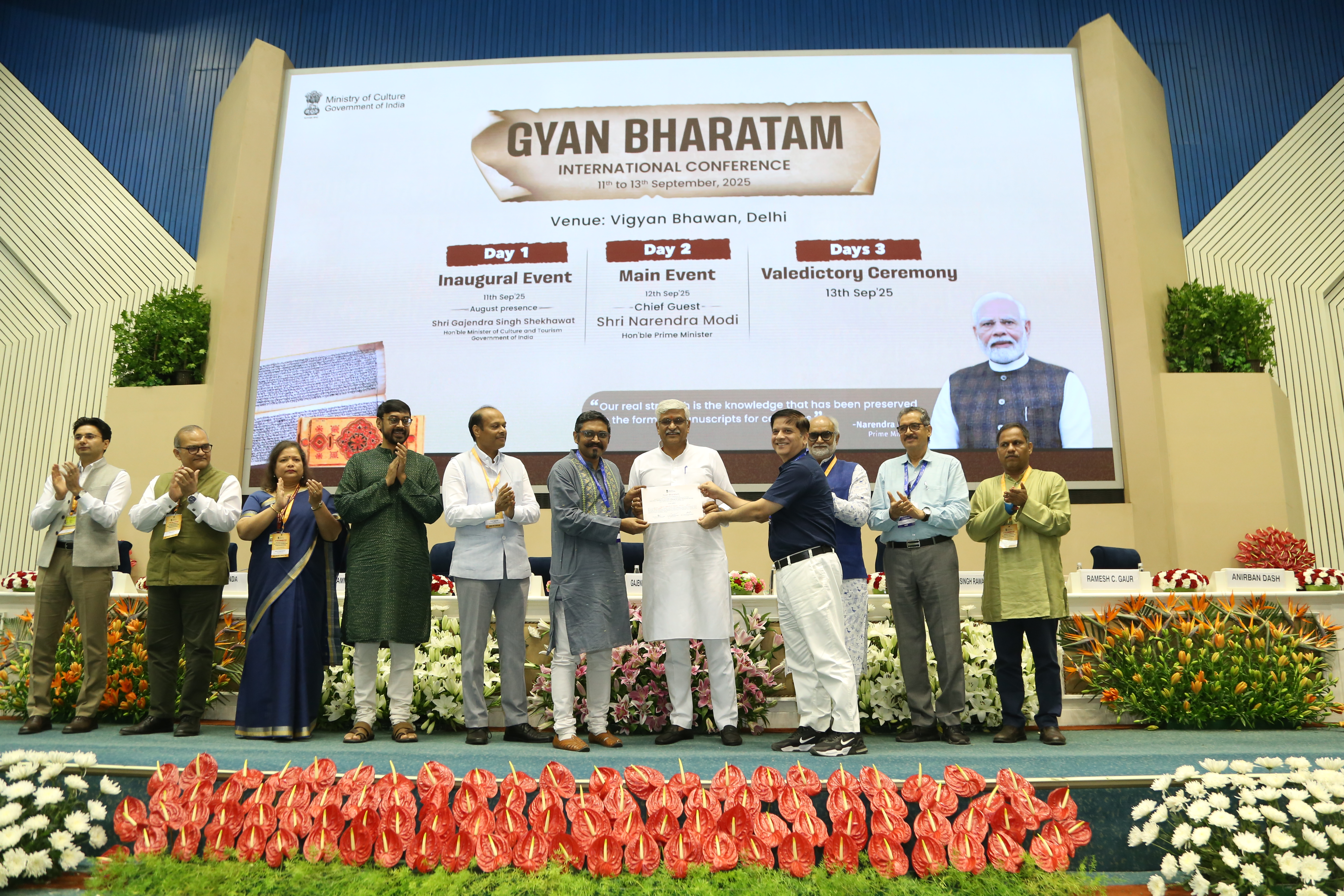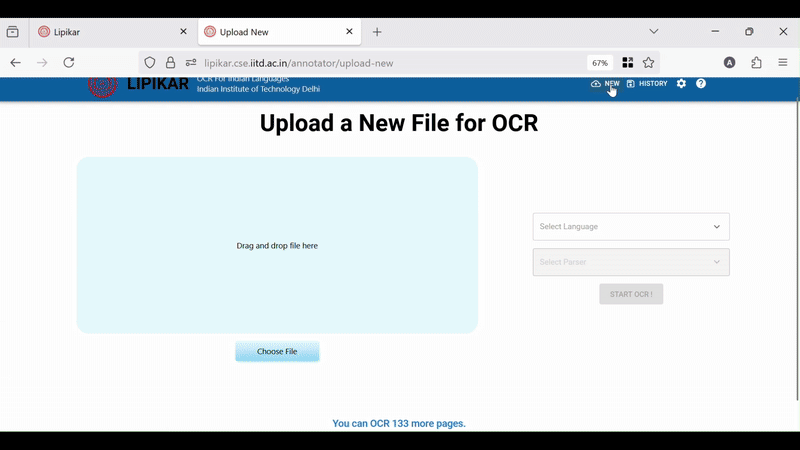Lipikar wins the Gyan Setu National AI Innovation Challenge
On 11-13 September 2025, at Vigyan Bhavan, New Delhi, the Lipikar project was recognized as one of the winners at the Gyan Setu National AI Innovation Challenge, organized under the Gyan Bharatam Mission by the Ministry of Culture, Government of India. The challenge sought AI-driven solutions for cataloguing, digitizing, deciphering, and disseminating India’s vast manuscript heritage.
Developed as a collaboration between Arjun Ghosh and Chetan Arora, Lipikar addresses one of the foundational bottlenecks in working with Indic manuscripts: the absence of reliable, open-source OCR (Optical Character Recognition) tools for multiple Indian scripts. By training AI models on carefully prepared ground-truth datasets, Lipikar makes it possible to convert digitized images of manuscripts into machine-readable text.
A distinctive feature of Lipikar is its emphasis on data sovereignty and accessibility. Instead of relying on closed, cloud-based pipelines, Lipikar is designed to run on low-cost edge devices. This ensures that manuscript-holding institutions, libraries, and even individual scholars can use the tool without concerns of data leaving their custody. By building on indigenous models trained on representative Indic corpora, Lipikar reinforces the principle that India’s cultural heritage must remain under local stewardship, while still being made accessible for global research.
At the same time, Lipikar is deeply rooted in Digital Humanities practice. Beyond the technological architecture, the project required sustained humanities input: the study of text corpora, identification of representative samples, and annotation and validation to create high-quality training datasets. This bridging of humanities scholarship and computational methods demonstrates how our institution can lead in building culturally grounded AI systems.
The award at Gyan Setu not only recognizes Lipikar’s technical achievement but also affirms the importance of humanities–technology collaborations in addressing India’s urgent cultural challenges. With millions of manuscripts still awaiting digitization and study, Lipikar points to a model where AI innovation is informed by linguistic expertise, cultural context, and a commitment to data sovereignty.


